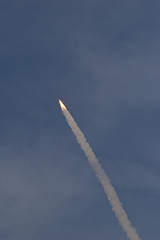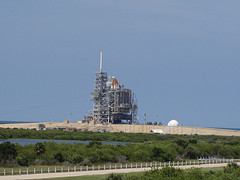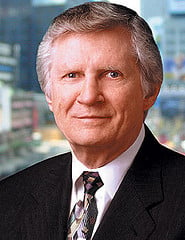 Living on the Space Coast for more than 40 years, we’ve seen the ups and downs of a community with one major industry–space. My husband is a retired Aerospace Technologist who worked for NASA. He was a design engineer whose design work spanned from the early days of the Saturn rockets to design and maintenance of the shuttle.
Living on the Space Coast for more than 40 years, we’ve seen the ups and downs of a community with one major industry–space. My husband is a retired Aerospace Technologist who worked for NASA. He was a design engineer whose design work spanned from the early days of the Saturn rockets to design and maintenance of the shuttle.
When the first shuttle, the Challenger, exploded, I was standing in the church yard with a large group of school children. As we watched the terror of parts flying in all directions in the azure, clear sky, our cheers screeched to horrified silence. The teachers quietly and quickly herded their students back into the classrooms. I rushed into my office to call my husband. It was too soon for the phones to be jammed, which would be the case within a few minutes. Frank answered the phone, “What happened?” I asked.
“I don’t know but I would say it was the o-rings that failed,” he told me. “That is the only thing that makes sense.” After months, of investigations, NASA found that the explosion was caused by a failure of the o-rings.
For more than 40 years, our dinner conversations were filled with engineering problems and design kinks. The last thing we talked about at night was the next launch. The first thing in the morning was the problem of the day at Kennedy Space Center. Discussion in and out of work with engineering colleagues still means talking about the future of space and what comes next. As odd as that may seem to others, it was normal to us. Space was our business.  Most engineers lived and breathed exploration.
Most engineers lived and breathed exploration.
From the most active and creative minds, to the skilled worker, we were a part of one of mankind’s greatest ventures, exploring the unknowns of space travel. Even the mentally challenged community was actively involved with space exploration. Brevard Achievement Center, a sheltered workshop in Rockledge, Florida, held several contracts with NASA to sort and package the information that went out to school children all over the world.
Today, everything will stop to see the shuttle Endeavour fly for the last time. For the rest of the world, drama has been added because the commander is Mark Kelly. His wife, Congresswoman Gabrielle Giffords who was nearly killed a few months ago will be here. To add to the excitement, President Obama and his family are in the audience.
But life won’t stop for us because of the important people who are visiting our wonderful space center. These dignitaries are not the main attraction for the women and men who have lived, eaten and breathed this adventure. The Endeavour will be the star of this show.
And time will stop for us because it is an end of an era. As always, traffic will pull over to the side of the road. Drivers and passengers will spill out of their cars and vans. Restaurants will empty. Schools yards and parking lots will be filled with squirmy children and unimpressed teenagers. The beaches will be filled. Like children, in unison, we will count 10, 9, 8…and shout, “Lift off.” Every eye will be looking toward the sky. 
Living in the center of history for more than 40 years has influenced all of Brevard County residents. We understand the impact that our life’s work will have on the future. Because of this reality and how our lives have been lived, I’ve often wondered if the Apostle Paul had any idea the great impact his life and letters would have on the entire world. Did he understand that God was using him to initiate the establishment of a civilization? Could he have known that one day he would be designated as The Architect of the Church?
Can any of us know the real impact our lives are having on others? As Brevard County brings to a halt all other activity to view this mark in history, Christian and non-Christians will be praying for a safe journey for Commander Kelly and his crew. We understand the significance of this journey. But do we understand the equal impact of God’s hand resting on our lives?

